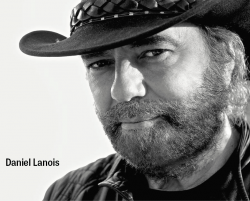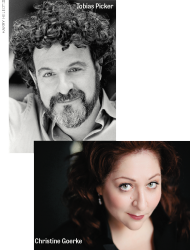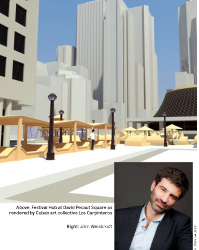In the Sound (Always the Producer)
 As bodies begin to fill the sea of burgundy and beige chairs in legendary Massey Hall, the excitement for tonight’s show is palpable. Daniel Lanois has the opening slot for Emmylou Harris at the end of their tour celebrating the reissue of 1995’s Wrecking Ball, for which Lanois also owns producing credit. As I watch the diverse crowd trickle in, the instrumental pre show music seeping out from surrounding speakers catches me. I think it is Lanois’ music but I can’t say for sure. That guess is put to rest as Lanois appears on stage walking with purpose and perfect timing to be seated at his pedal steel. There is a smooth transition from the speakers into a live continuation. Everyone’s focus has redirected and for the first time since I can remember, there is not one illuminated cellphone in my peripheral. This crowd is here to listen.
As bodies begin to fill the sea of burgundy and beige chairs in legendary Massey Hall, the excitement for tonight’s show is palpable. Daniel Lanois has the opening slot for Emmylou Harris at the end of their tour celebrating the reissue of 1995’s Wrecking Ball, for which Lanois also owns producing credit. As I watch the diverse crowd trickle in, the instrumental pre show music seeping out from surrounding speakers catches me. I think it is Lanois’ music but I can’t say for sure. That guess is put to rest as Lanois appears on stage walking with purpose and perfect timing to be seated at his pedal steel. There is a smooth transition from the speakers into a live continuation. Everyone’s focus has redirected and for the first time since I can remember, there is not one illuminated cellphone in my peripheral. This crowd is here to listen.
For the duration of the first song, Lanois hasn’t looked up once, he is in the sound, and we are all there with him. His fingers move with precision against the strings and I get lost in the story that is created by them and the sounds, reminiscent of an open vintage jewelry box. The crowd’s expectations are undoubtedly safe here; he knows what he is doing. Lanois knows music like few others and this opening set is a chance for us to be reminded that not only is he a master of shaping the sound of others but he too owns his own space as an award-winning musician and songwriter.





